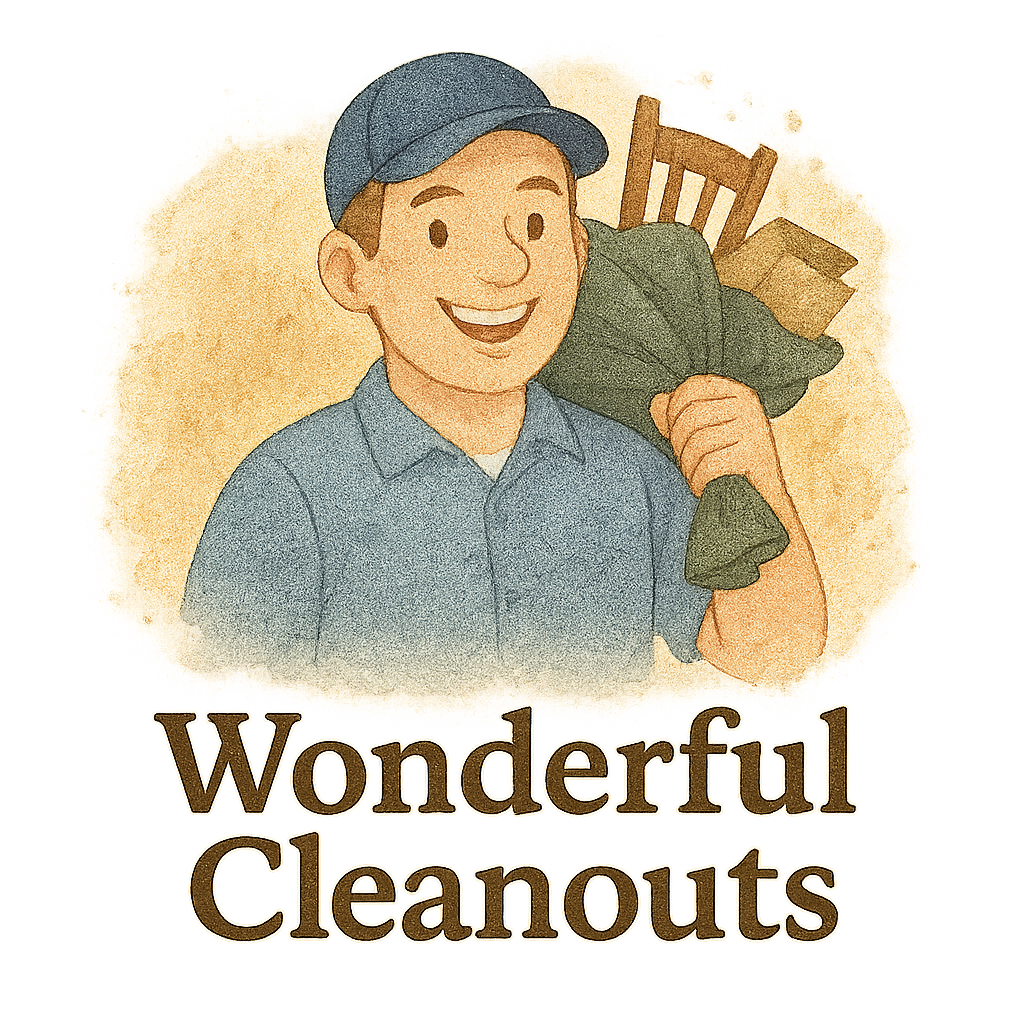Cleaning out a loved one’s estate isn’t just about removing old furniture and bagging up clothes. It’s about sorting through memories, navigating family tensions, and dealing with layers of grief. Let’s talk about the emotional side of estate cleanouts—and how to cope.
Understanding the Emotional Weight of Estate Cleanouts
Why Estate Cleanouts Are So Emotionally Draining
Unlike a regular cleanout, an estate cleanout comes with a backstory—often involving grief, trauma, or even unresolved family dynamics. Each drawer might hide a memory, and every closet tells a story.
Common Triggers During Estate Cleanouts
Seeing a familiar sweater, finding an old letter, or uncovering a forgotten photo album can quickly overwhelm even the most emotionally prepared. These items aren’t just “things”—they’re pieces of a life once lived.
Challenge 1: Grieving While Sorting Belongings
The Pain of Letting Go
Grief doesn’t follow a schedule, and trying to clean out a space while mourning is incredibly tough. You’re expected to be productive while your heart is still breaking.
Coping Strategies for Grief and Memories
Start small. Sort one room or one box at a time. Take breaks often. If you find something meaningful, pause and honor the memory. You don’t have to rush.
Tip: If it feels too overwhelming, consider reaching out to estate cleanout professionals who understand the emotional weight behind these tasks.
Challenge 2: Family Conflicts and Disagreements
The Emotional Toll of Inherited Disputes
Emotions run high when dealing with inheritance. What’s meant to be a joint effort can quickly turn into disputes over who gets what or how things are handled.
Communication Tips for a Harmonious Cleanout
Set clear expectations upfront. Use group chats or emails to keep everyone in the loop. If needed, bring in a neutral third party to help mediate.
Check out this guide on planning and tips to make the process smoother and less stressful.
Challenge 3: Overwhelming Clutter and Decision Fatigue
The Paralysis of Too Many Choices
Walking into a cluttered home full of personal items can be paralyzing. You don’t know where to start, and every item feels too important to toss.
Creating a Simple Action Plan
Break down the job into smaller zones—bedroom, kitchen, garage. Use color-coded bins for “Keep,” “Donate,” and “Discard.” Set timers to help keep you moving.
Need help with overwhelming clutter? Garage and attic cleanout services can take a big load off your shoulders.

Challenge 4: Guilt About Discarding Sentimental Items
Why We Feel Attached to Objects
That cracked teacup? It’s not about the cup—it’s about Sunday mornings with grandma. Throwing it away can feel like throwing her away too.
Finding Meaningful Ways to Honor Memories
Take photos of sentimental items before letting them go. Create a memory box. Donate to charities your loved one supported. These acts preserve meaning without hoarding everything.
Explore residential cleanout services that offer respectful ways to deal with cherished items.
Challenge 5: Physical and Mental Exhaustion
Understanding Cleanout Burnout
The physical lifting is one thing—but the emotional labor? That’s next-level. Decision fatigue, grief, and stress pile on fast.
Self-Care Tips During the Process
Get rest. Eat nourishing foods. Talk to someone—friends, therapists, or even compassionate pros from a service like Wonderful Cleanouts.
Use tools and safety tips found in their gear and tools section to make things easier and safer.
How Professional Estate Cleanout Services Can Help
The Benefits of Compassionate Cleanout Professionals
Hiring a service that understands grief and sensitivity can change everything. These folks aren’t just movers—they’re emotional allies.
Recommended Services for Stress-Free Cleanouts
Check out these specialized services:
- Estate cleanouts
- Hoarding cleanouts
- Commercial cleanouts (if the estate involves a business)
When to Consider a Specialized Cleanout
Hoarding Situations and Emotional Support
Hoarding adds another emotional layer. There’s shame, guilt, and often denial. A cleanout team with hoarding experience knows how to handle this with care.
Learn more at hoarding cleanouts and the related hoarding tips tag.
Estate Cleanouts After a Sudden Loss
When loss comes suddenly, there’s often no plan in place. The emotional whiplash makes cleanouts even more difficult.
Professional help from Wonderful Cleanouts ensures compassion and structure during the chaos.
Staying Emotionally Resilient Through the Process
Leaning on Support Systems
Don’t isolate yourself. Bring friends or family for support. Share stories. Cry together. You’re not alone in this.
Embracing the Healing Journey
Grief doesn’t go away when the house is empty. But each step forward can be part of the healing.
Explore emotional safety and planning resources to keep grounded during the journey.
Conclusion: Moving Forward with Compassion
Estate cleanouts are hard—not just physically, but emotionally. From grief to guilt to exhaustion, each challenge is valid and real. But you’re not alone. Whether you lean on loved ones or professionals like Wonderful Cleanouts, there’s support out there.
This process is less about what you throw away and more about how you honor what’s left behind.
FAQs
1. How long should I wait before starting an estate cleanout?
There’s no perfect timeline. Give yourself grace—some people need days, others need months.
2. What if I can’t emotionally handle the cleanout alone?
You don’t have to. Hiring an estate cleanout team can offer both practical and emotional support.
3. How do I manage family disagreements during cleanouts?
Set boundaries and roles early. Consider a third-party mediator or consult planning tips.
4. Is it okay to feel guilty about throwing things away?
Yes, totally normal. Try taking photos or creating memory books to preserve the sentimental value.
5. What if the home is filled with clutter or hoarding items?
Look into hoarding cleanout specialists who are trained for compassionate handling.
6. What safety precautions should I take during a cleanout?
Use gloves, masks, and proper tools. Check out this guide on cleanout safety.
7. How can I stay organized during the process?
Use labeled bins and a checklist. You can find great tips in cleanout tools and gear.

